As an Amazon Associate, I earn from qualifying purchases. In addition, I participate in several other affiliate programs that allow me to earn while I recommend products I love.
In the world of grains, barley has long been a beloved ingredient, prized for its earthy flavor and hearty texture.
Whether simmered in nourishing soups, incorporated into wholesome salads, or transformed into comforting pilafs, barley adds a delightful depth to countless dishes.
However, there are times when our pantry might not be stocked with this versatile grain, leaving us searching for suitable alternatives.
Fear not, for the culinary landscape is brimming with an array of exceptional substitutes that can effortlessly step into barley’s place and bring their unique flavors to our favorite recipes.
In this guide, we’ll explore the best substitutes for barley that will come to your culinary rescue when you find yourself in need.
From chewy farro and protein-packed quinoa to nutty wheat berries and gluten-free buckwheat, each substitute offers a distinctive taste and texture, enriching your dishes in delightful ways.
1. Farro
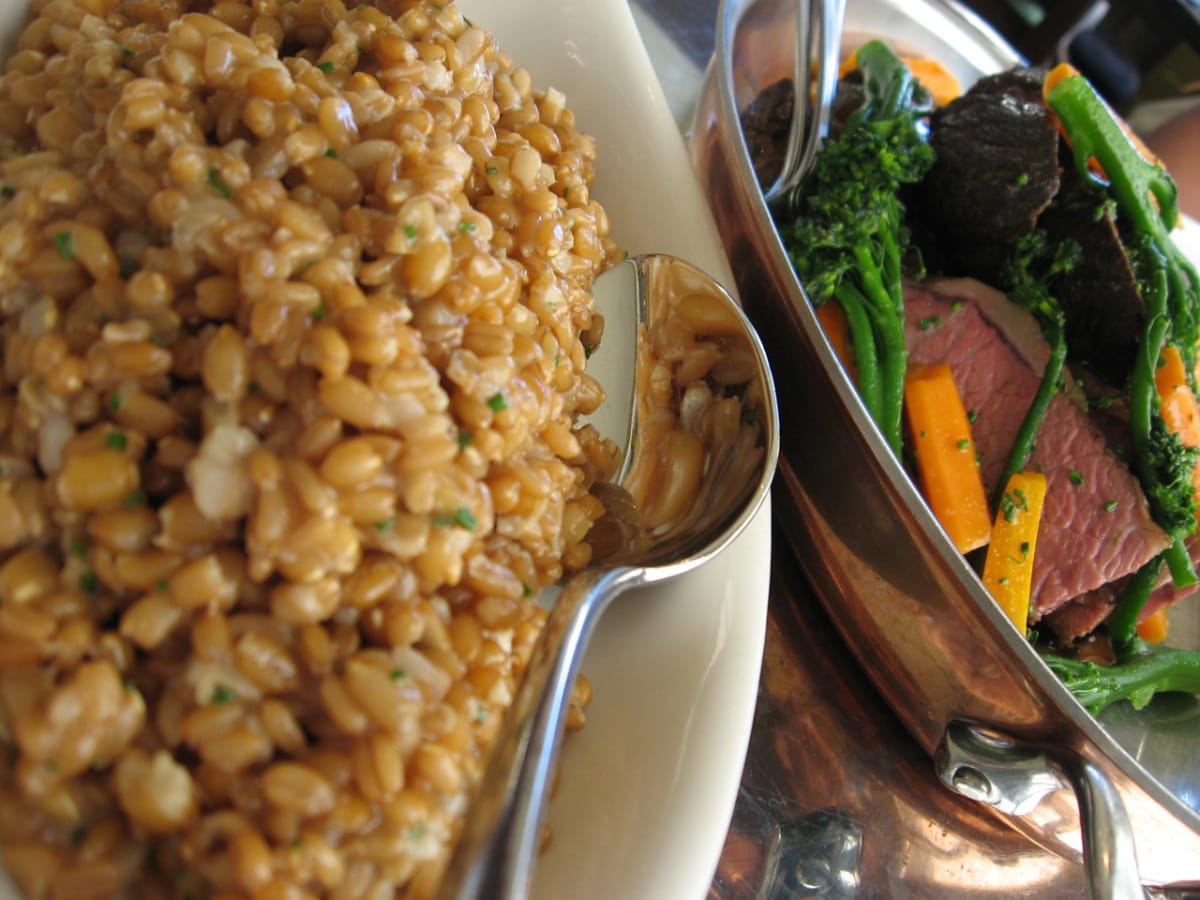
What can be used in place of barley?
Farro is an ancient grain that boasts a hearty and nutty flavor, making it an excellent substitute for barley.
Its chewy texture adds a delightful element to soups, salads, and side dishes.
Like barley, farro is a versatile grain that pairs well with a variety of ingredients, making it a fantastic choice for experimenting with new recipes.
2. Quinoa
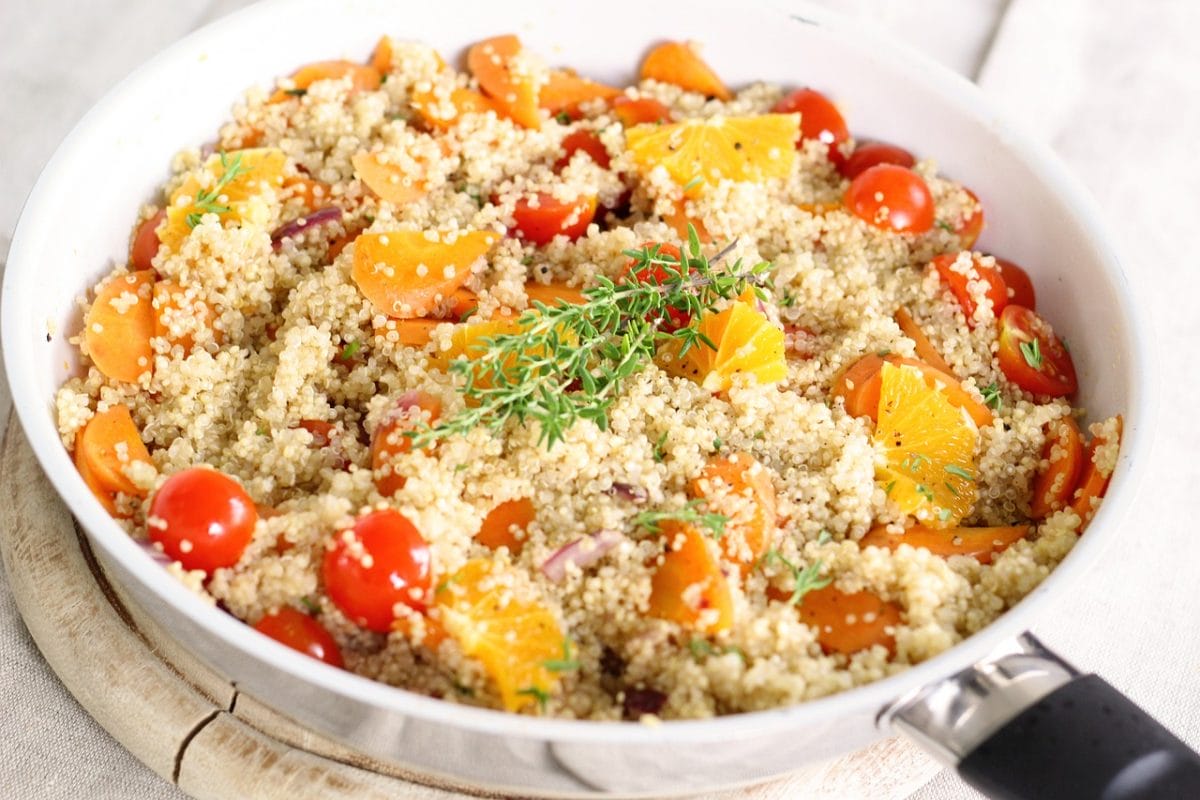
What is a good substitute for barley?
Known for its high protein content and slightly nutty taste, quinoa is a fantastic barley alternative in various culinary creations.
This grain-like seed can be used as a substitute in salads, pilafs, and as a base for grain bowls.
Its quick cooking time and impressive nutritional profile make quinoa a favorite among health-conscious food enthusiasts.
3. Brown Rice
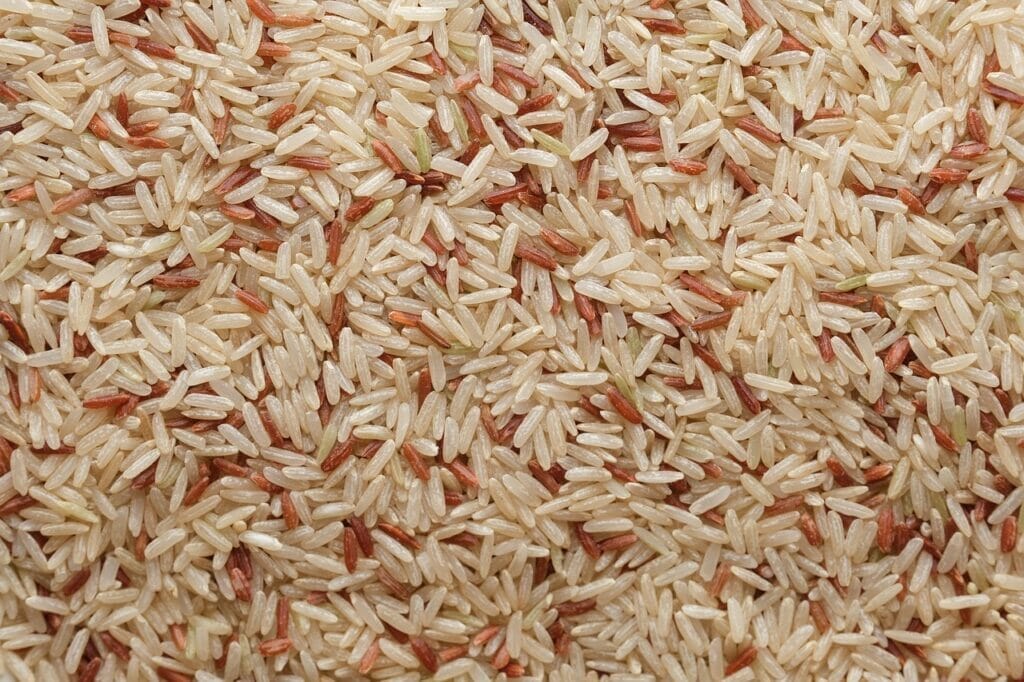
Brown rice, a staple in many households, can also serve as a wonderful barley substitute.
With its nutty flavor and slightly chewy texture, it works well in a wide array of dishes, including soups, casseroles, and grain bowls.
Like barley, brown rice is a whole grain, rich in fiber and essential nutrients, making it a wholesome addition to your meals.
4. Wheat Berries
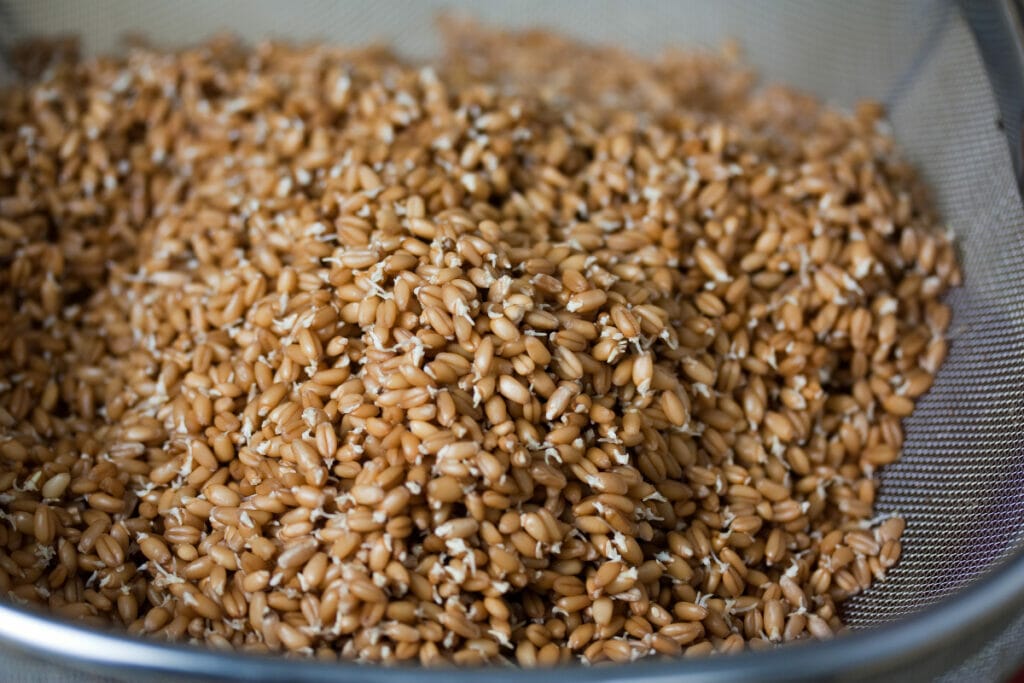
Wheat berries are another great option to replace barley in your culinary adventures and is a great substitute for barley.
With a texture similar to barley, wheat berries contribute a chewy and wholesome element to salads and grain-based dishes.
These whole, unprocessed wheat kernels retain their natural bran, germ, and endosperm, providing a rich source of fiber, vitamins, and minerals.
5. Buckwheat
Need a substitution for barley?
Despite its name, buckwheat is not related to wheat and is naturally gluten-free, making it an excellent barley alternative for those with gluten sensitivities.
With a nutty flavor and a slightly crunchy texture, buckwheat is ideal for adding to soups and porridge.
Buckwheat groats can also be ground into flour to create nutritious and flavorful pancakes or baked goods.
6. Couscous
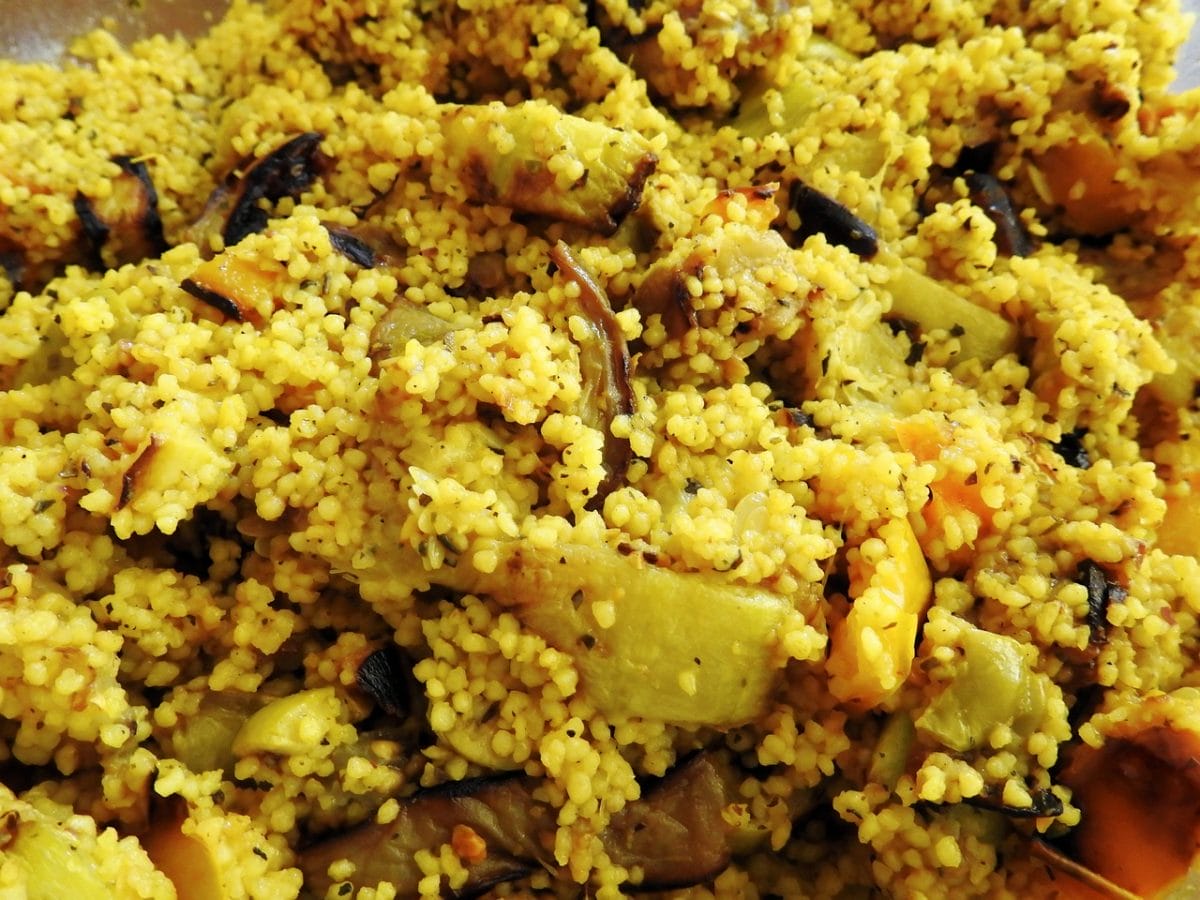
Want a barley replacement?
Couscous, a quick-cooking pasta-like grain, is another suitable barley substitute that can be used in a variety of dishes.
It works well in salads, pilafs, and side dishes, adding a light and fluffy texture.
Despite its appearance, couscous is made from semolina wheat and is not a true grain.
7. Bulgur
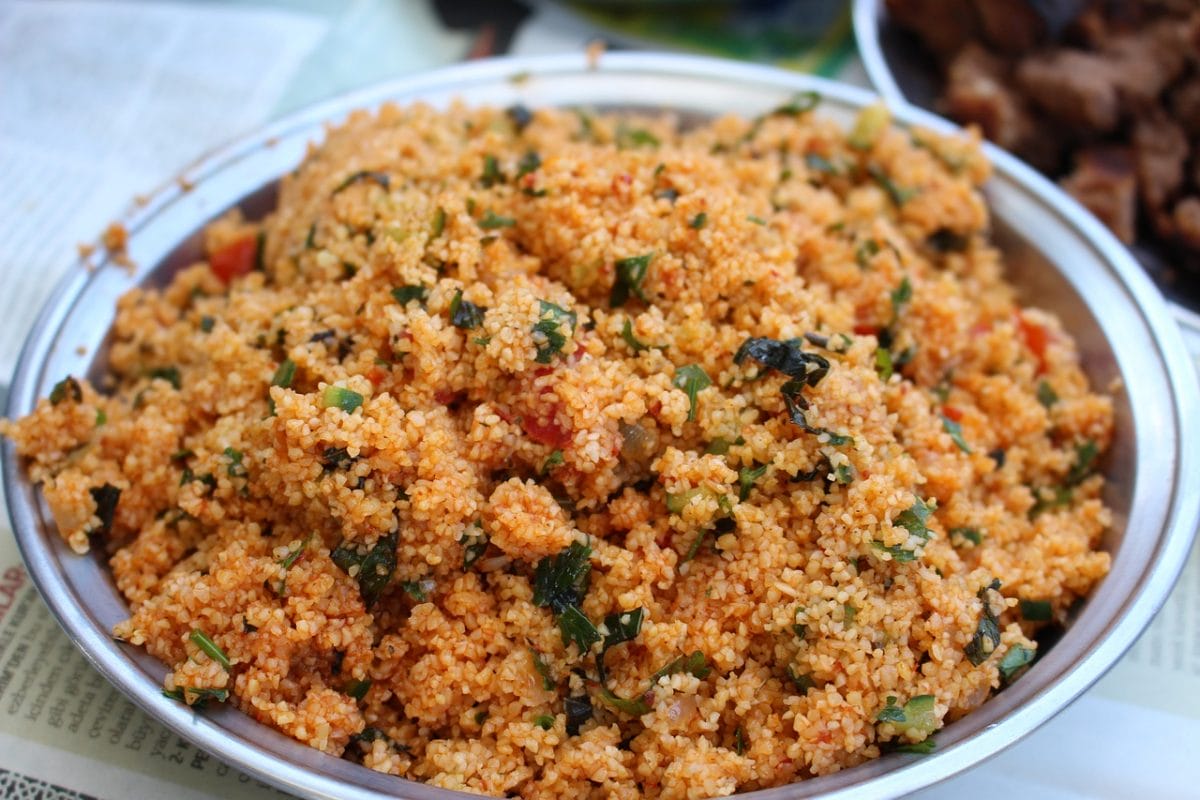
Looking for a barley alternative?
Bulgur, a traditional Middle Eastern grain made from cracked wheat, is a wonderful alternative to barley.
With a mild nutty taste and a pleasant chewy texture, it enhances salads, pilafs, and Middle Eastern dishes.
Bulgur is precooked, making it quick and convenient to prepare in various recipes.
8. Millet
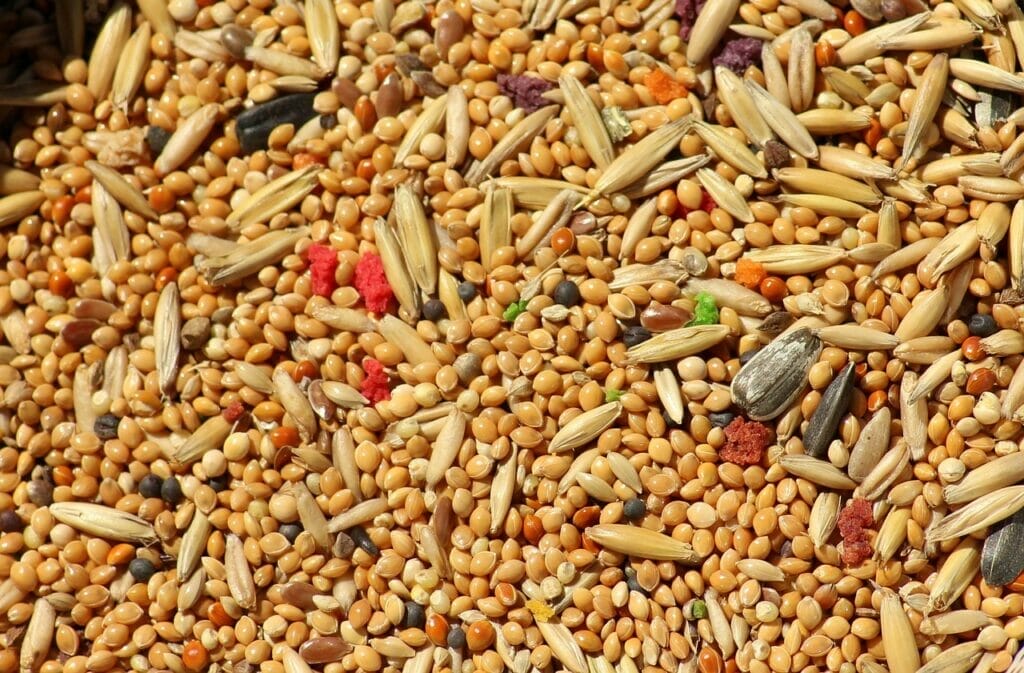
What can you substitute for barley?
Millet, a small gluten-free grain, provides a subtle and nutty flavor, making it an excellent barley replacement.
Its tiny grains can be used in soups, porridge, and grain-based dishes, adding a delicate and wholesome touch to your cooking.
Millet is a good source of essential nutrients and offers a light and fluffy texture when cooked.
9. Pearl Barley (Hulled Barley)
Best barley substitutes include pearl barley!
A close relative to barley, pearl barley is more processed and has the outer hull removed, resulting in a lighter and quicker cooking grain.
It provides a similar texture and flavor to barley, making it a suitable substitute in a variety of dishes.
Pearl barley is a common choice for soups, stews, and risottos, where its creamy and hearty consistency enhances the overall dish.
10. Freekeh
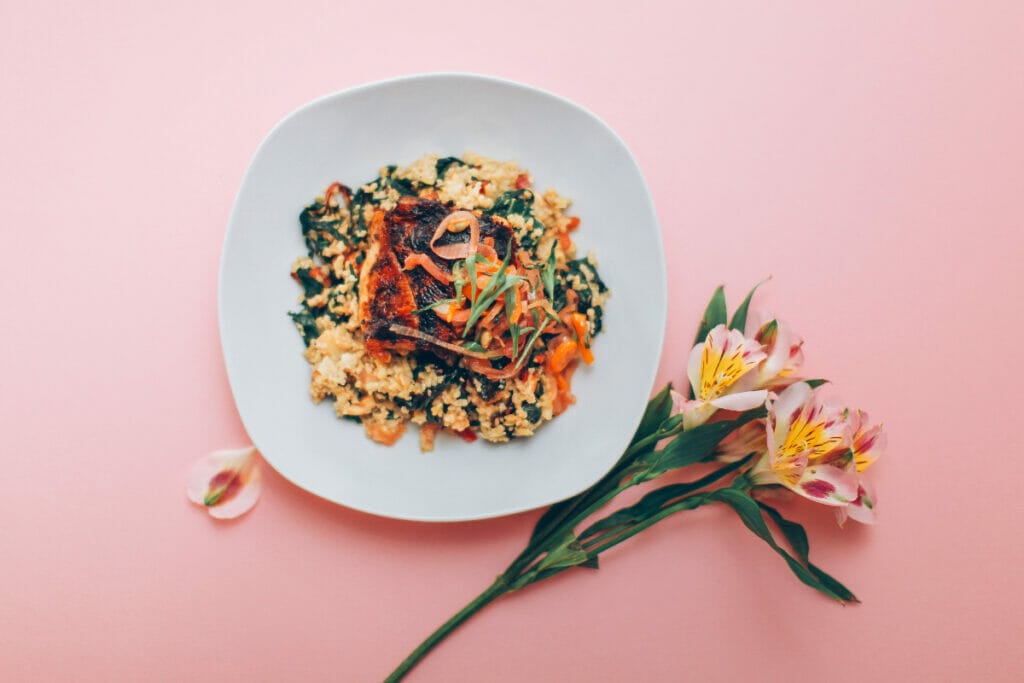
Freekeh, a roasted green wheat with a smoky flavor, is a unique and flavorful option for replacing barley in your recipes.
Its earthy taste and chewy texture add a delightful touch to salads, pilafs, and side dishes.
Freekeh is rich in fiber and offers a distinct flavor profile that sets it apart from traditional grains.
11. Wild Rice
While not a true rice, wild rice is a fantastic barley substitute that offers a unique texture and taste.
Its long, slender grains provide a chewy and nutty element to rice blends, pilafs, and soups.
Wild rice is often mixed with other grains to create delicious and visually appealing dishes.
12. Spelt
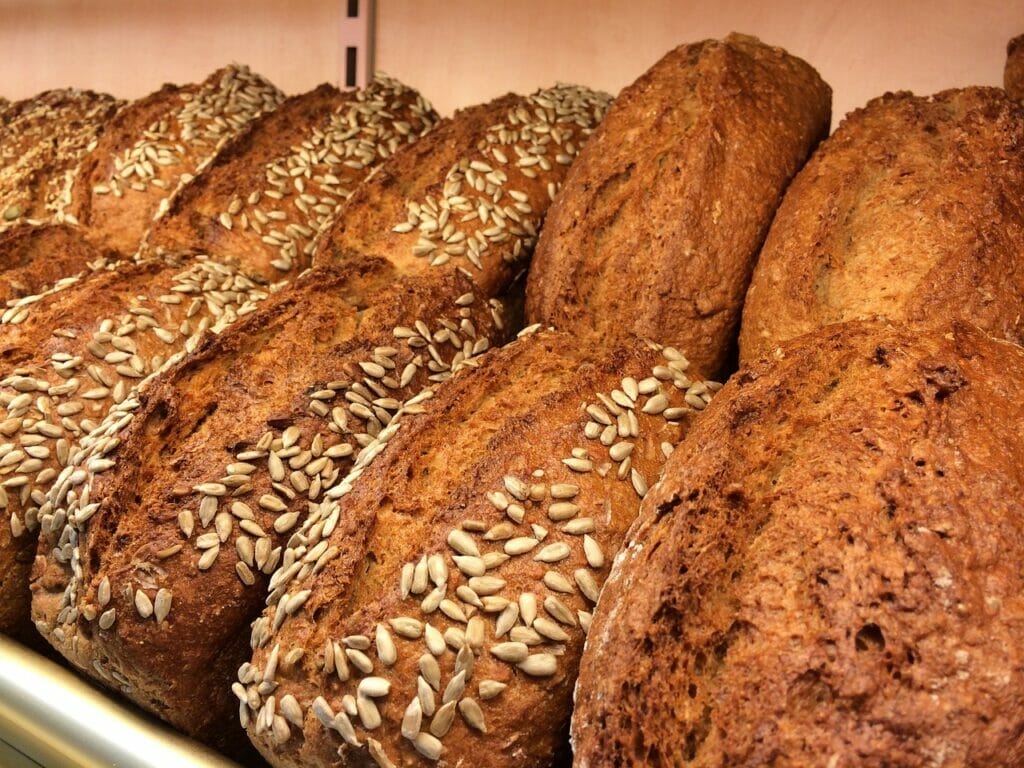
An ancient grain with a nutty and slightly sweet taste, spelt is an interesting barley alternative that can be used in various dishes.
Its versatility allows it to be incorporated into soups, salads, and even baked goods.
13. Lentils
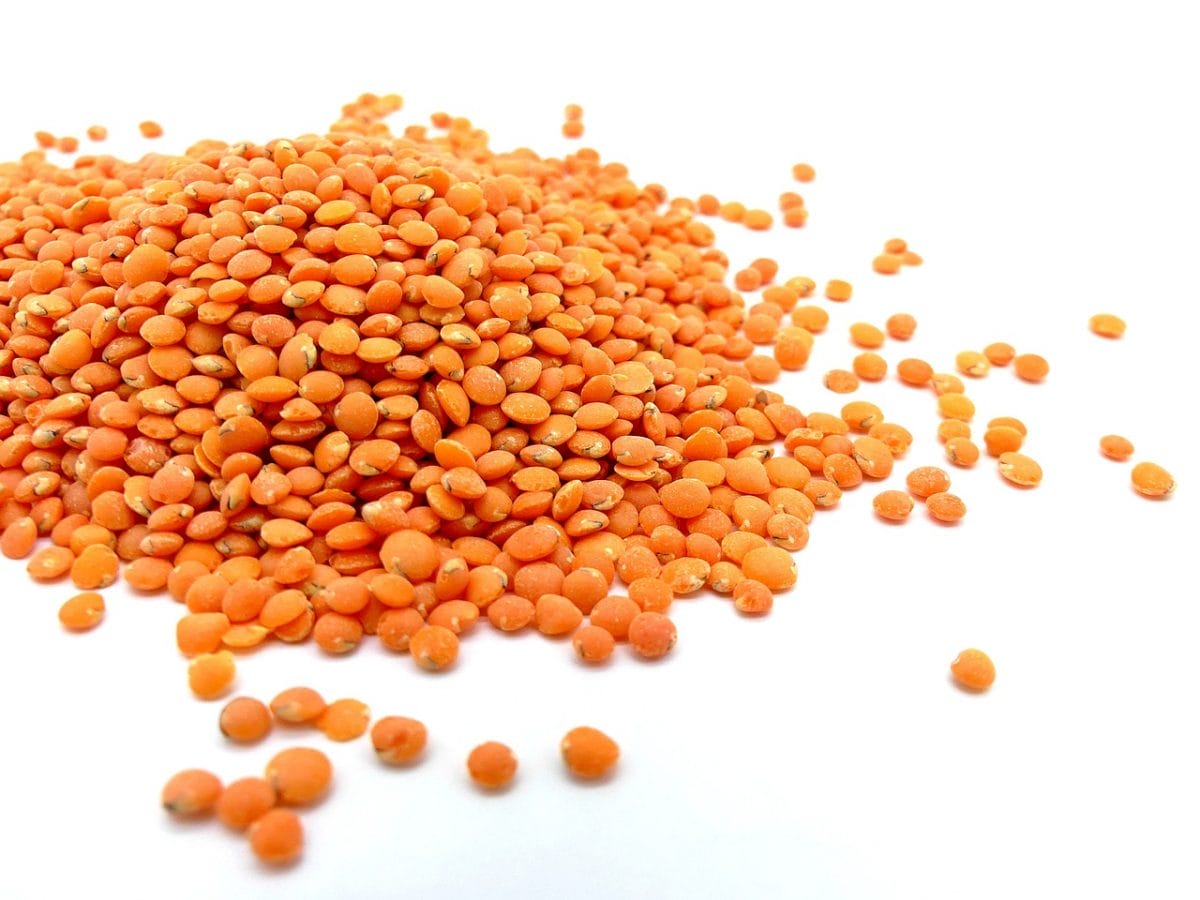
Lentils, although not classified as grains, are a nutritional powerhouse and an excellent protein-rich alternative to consider when seeking a substitute for barley.
These tiny legumes come in various colors, such as green, brown, red, and black, each with its distinct taste and texture.
Lentils have long been cherished in vegetarian and vegan diets for their high protein content and numerous health benefits.
When used as a replacement for barley, lentils bring a unique element to soups and stews.
They have a natural ability to absorb the flavors of the ingredients they are cooked with, resulting in a rich and hearty base for your culinary creations.
Need more food substitution ideas? Check these out!
- 19 Easy Mushroom Substitutes for the Perfect Swap
- 9 Best Substitutes for Beans
- 13 Best Substitutes for Broccoli
- 11 Best Substitutes for Rutabaga to Save Your Meal
- 15 Best Substitutes for Rosemary
- 15 Genius Raclette Cheese Substitutes
- 19 Easy Chickpea Replacements
- 15 Best Cilantro Replacements
- 13 Best Substitutes for Brie
- 11 Best Bay Leaf Replacements
- 15 Best Substitutions for Grapefruit
